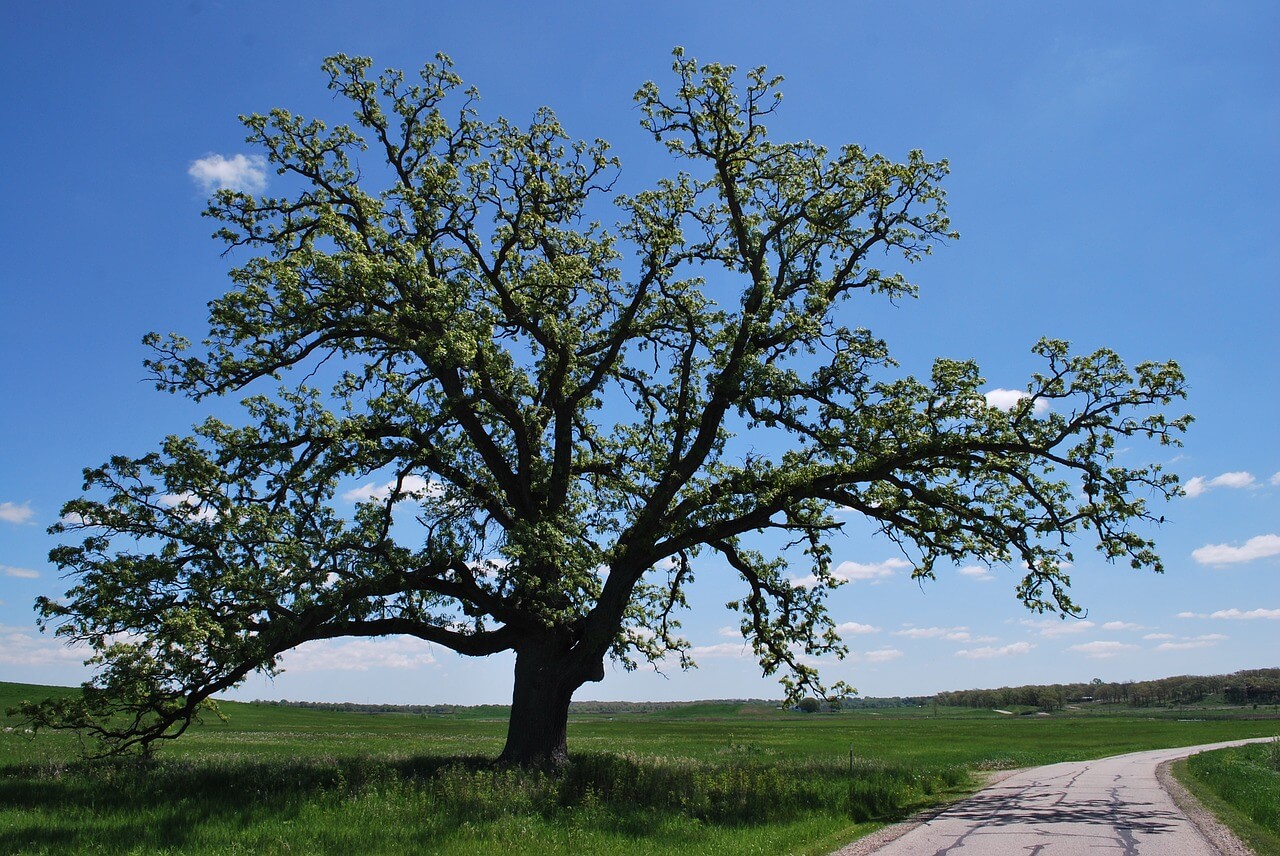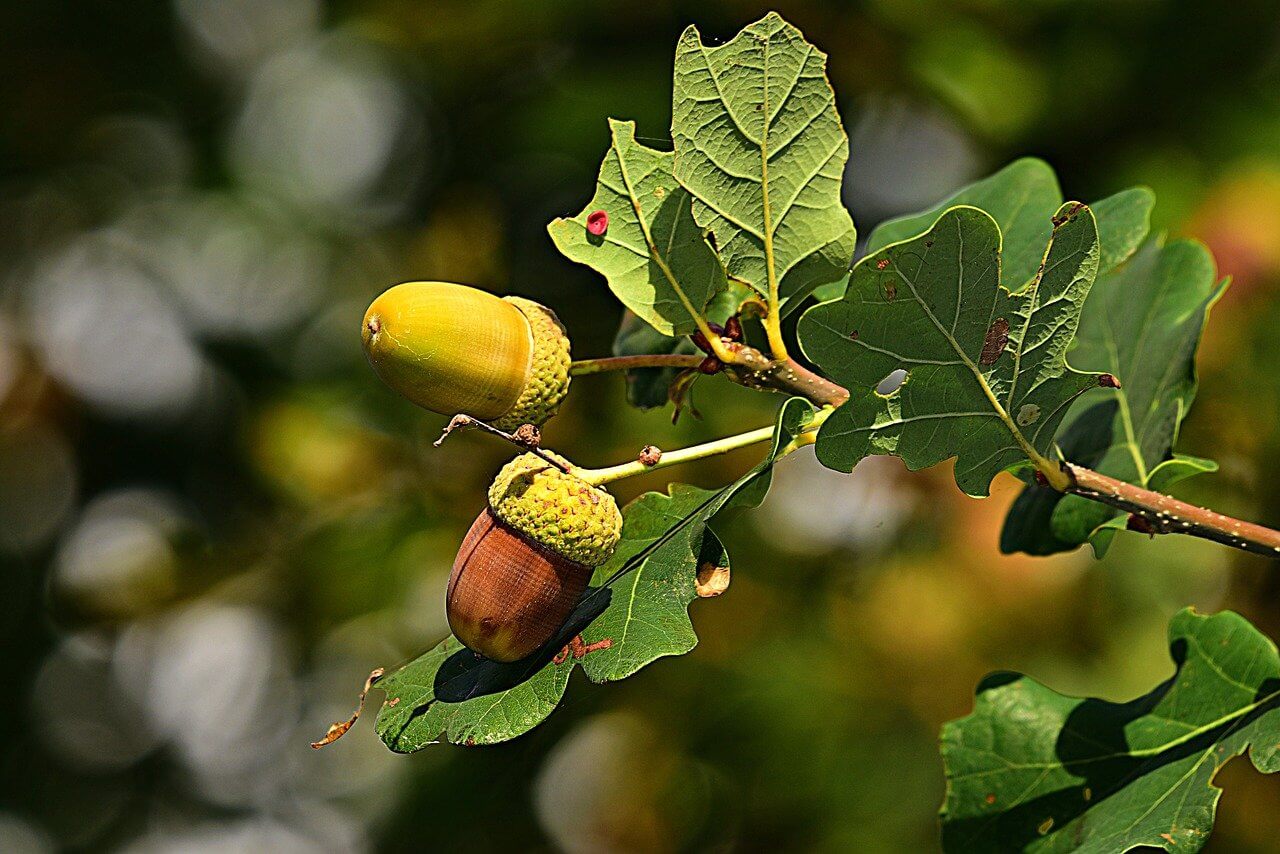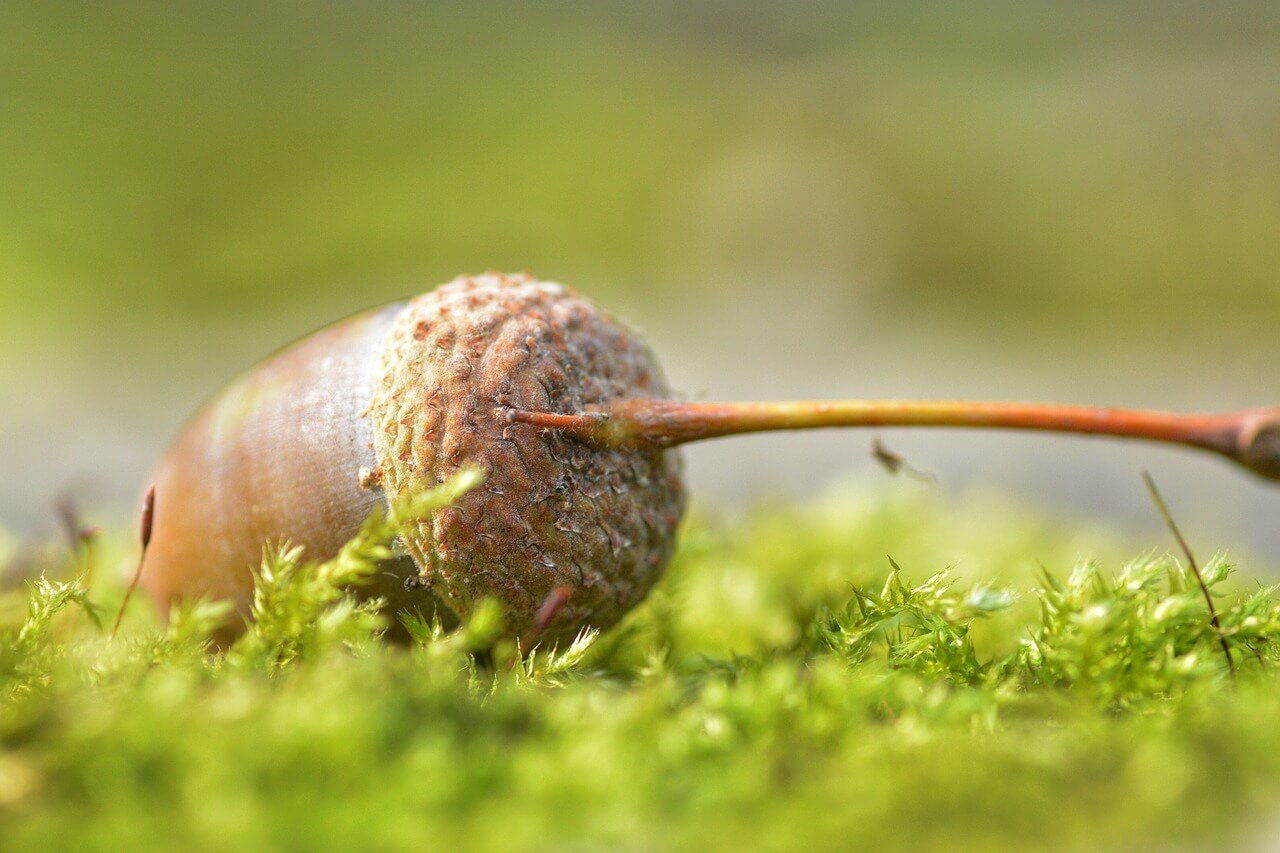If you have oak trees on your property, you know that their yearly acorn crops can be highly unpredictable. Some years you may have a bumper crop of acorns that you don’t know what to do with, while other years there aren’t even enough acorns to support a starving squirrel. So, exactly when do oak trees produce acorns, and why are their crops so variable? Keep reading to find out more.
What You'll Learn Today
- When Do Oak Trees Start Producing Acorns?
- How Often Do Oak Trees Produce Acorns?
- What Oak Trees Produce Acorns the Fastest?
- What Does it Mean When Oak Trees Don’t Produce Acorns?
- When Do Acorns Fall From Oak Trees?
- When Do Oak Trees Stop Dropping Acorns?
- What To Do With Acorns Falling From Oak Trees
- Conclusion
When Do Oak Trees Start Producing Acorns?

Like most trees, oaks don’t begin fruiting right away. It takes years for a young oak tree to grow and mature to the point it can begin bearing acorns.
It’s hard to say exactly when a tree will start producing acorns. According to the University of Missouri Extension, oaks typically begin fruiting around 30 years of age, but this number can vary widely depending on several factors.
For one thing, oak trees cross pollinate and produce hybrids quite easily. A hybridized tree may begin fruiting later than one of its parents and earlier than the other.
Some oak species may produce their first crop around 20 years into its lifespan, then go the next two or three seasons without producing any acorns at all. Young trees may be stunted by environmental factors, which could cause them to produce their first crop at an older age than expected.
Regardless of when a tree begins fruiting, most oak trees don’t bear their best crops until after 50 years and before 80 years of age.
How Often Do Oak Trees Produce Acorns?
There are two main categories of oak trees: white oaks and red oaks. Both groups produce a crop of acorns annually, but the method of production varies slightly.
White oaks will produce a crop of acorns in about 3 months, or a single growing season. Some white oak species include burr, post, and chinkapin oaks.
Red oaks need 15 months, or two growing seasons, to produce a crop of acorns. Red oak species such as the pin oak and willow oak typically have a mix of mature and immature acorns during any given autumn.
What Oak Trees Produce Acorns the Fastest?

As noted above, trees in the white oak family produce mature acorns in just 3 months. That said, it may still take 20 or 30 years before most trees in this family begin producing acorns in the first place.
The sawtooth oak begins producing acorns at a younger age than any other oak species. Sawtooths are known for fruiting as young as five years and producing consistently high yields.
What Does it Mean When Oak Trees Don’t Produce Acorns?
With most oak species, the amount of acorns produced varies greatly from year to year. It is nearly impossible to tell whether a certain tree will produce a good crop in any given year until the tree is actually fruiting.
Several factors may contribute to a poor yield of acorns, including:
- A late frost
- Periods of drought
- Insufficient pollination
- Various diseases
- Age of the tree
- Pests
- Tree genetics
If you notice an oak tree that isn’t producing acorns, it might be too young or too old, malnourished, diseased, overrun with insects, or damaged by a late season frost. Or it could just be having an off year.
Some species of oak produce better than others; even then, some trees within a species do better than others within that same species. And, regardless of any outside factors, some years are simply better for acorn production than others.
When Do Acorns Fall From Oak Trees?

Again, this varies from species to species and may be affected by other factors such as tree health and weather.
That said, acorns generally start falling when they are mature. The ones that fall earliest may be damaged or bug-riddled, while the ones that fall later are usually the healthiest.
Acorns usually fall during the autumn months, especially September and October. In some regions, they may begin as early as August, while in other areas they may continue falling through November or December.
When Do Oak Trees Stop Dropping Acorns?
Generally, trees will stop dropping acorns when all of the mature nuts have fallen, which is usually by late fall or early winter. Some acorns may cling stubbornly to the branches throughout the winter, where hungry birds or squirrels can collect them.
Red oak trees only shed their mature acorns each fall; the immature ones will hang on throughout the winter and into the following growing season, as long as they aren’t knocked off by storms or animals.
What To Do With Acorns Falling From Oak Trees
If you have oak trees in your yard or on your property, you may be wondering what to do with all the nuts that clutter the ground after a high-yield season. Here are a few ideas:
Leave Them for Wildlife to Collect
Acorns are a staple food for many animals during the winter. Deer, squirrels, birds, bears, chipmunks, and lots of other animals depend on the high nutritional content of acorns for energy and warmth when food is scarce.
If the acorns aren’t in an area where they’re causing damage or creating an eyesore in your yard, there’s no need to remove and dispose of them. Simply leave them where they fall and let the local wildlife gather them up.
Gather and Plant Them
If you’re looking to add some new oak trees to your property, why not start your own saplings from seed?
It’s easy to grow your own oak trees. Simply gather up the acorns, stratify them in the fridge for a month or two, plant them in potting soil, and watch them work their magic!
Use Them for Craft Projects
If you’re the creative, crafty sort, then just imagine all the beautiful things you could make using acorns. Wreaths, candles, table centerpieces, picture frames, rustic jewelry–the possibilities are endless!
Donate Them to a Zoo or Animal Shelter
If you really want to get rid of a large excess of acorns, give your local zoo or animal shelter a call. Sometimes, these places will use acorns for food or sensory projects with the animals, and chances are, they’ll be happy to take the acorns off your hands.
Cook With Them
Did you know you can eat acorns?
You should never eat them raw, as they contain a lot of tannins which make the acorns bitter and are unhealthy in large amounts. That said, you can leach the tannins out of the acorns by shelling them and soaking or boiling them in water, as shown in the following video:
Once all the tannins are removed from your acorn meat, you can use it to make bread or other pastries, porridge, soup, meatless burgers, and even a coffee substitute. You can easily google some good acorn recipes.
Conclusion
Oak trees produce acorns annually during the fall, but crop sizes vary widely based on a number of factors. Most oak trees begin producing acorns around 30 years of age and stop producing after reaching 80 years of age.
My oak tree is at least 70 years old. It dropped acorns but not every year. Then about 20 years ago, it stopped.
Today I noticed many small green acorns, most with no caps
What is happening?
Loretta,
The small acorns ran away form home, leaving everything, including their caps.
I started some red oak trees from acorns 21 years ago and I found a good acorn under one of those trees yesterday.
Hi,
I planted an English oak (in Northern Ireland) in a pot in 2011 and it produced a single acorn in 2021 which I planted in October 2021 and it germinated spring 2022.
So they can produce viable seed at a young age, much younger than 30.
AD
I have a burr oak planted twenty five years ago and have had acorns by the thousands the last three years but this year only a few are on the tree. The tree is a monster, 40 foot high and shades the entire west side of the house. In SLC Utah.
Do Acorn tree lose their leaves every year in February? Plus I hate this tree!! I have little trees trying grow where the Acorns dropped! And all I can do is mow them!! Back to my original question please. Thank you